than in the United States …
The Inquisition never could stop numerous anti-religion books
from circulating in Spain.
In the United States, the tyranny of the majority has taken away even the thought of publishing them.
-- Alexis de Tocqueville, Democracy In America I* --
America is more censored than Spain during the Inquisition: there you have it. The Inquisition was a tough act to follow -- literally. Yet, incredibly, America managed to do it.
Censorship in America has expanded exponentially since Tocqueville´s era. We will see why in a moment.
Part 1 of this series took issue with Julian Assange´s recent remark, "Ecuador is insignificant." On a diplomatic and legal level, all nations are equal in the eyes of the Peace of Westphalia of 1648, which put in place the nation-state system governing today´s world. All nations, without exception, are world players.
Part 2 discussed how Ecuador is significant in another way. It is testing the limits of American power -- and no oligarchy likes to be tested. Reportedly armed with $87 million, the C.I.A. is waging a full-court press to unseat Ecuador´s incumbent president, Rafael Correa, in his re-election bid early next year.
This third and final part explains how tiny Ecuador may prove to be significant in yet another area. Involved therein is why, by today´s standards, Tocqueville`s observation about America´s lack of independence of spirit did not go far enough.
* * *
Throughout the Western world today the first principle of freedom of thought and expression is a man: George Orwell. More than 60 years after his death, Orwell remains the polar star in any serious consideration of and opposition to totalitarianism.
Orwell discovered a door nobody knew existed. President Correa is knocking on it.
Early this month the Universidad de la Plata awarded Correa the Rodolfo Walsh Prize for Journalism. In his acceptance speech, he cited the need for an international dialogue -- a "debate planetario" -- on the role of the private media.
In that light, please see this blog´s three-part series, "Democratizing The Media" (posts of June 17, July 2 and July 16, 2012). The core idea:
New myth or new reality?
Chances are you have never heard of democratizing the media.
One revolution deserves another.
The revolution of 2008-2009, which changed the American political system into a full-fledged oligarchy, was neither unprecedented nor unheralded; Aristotle wrote about it 2000 years ago. (See post of October 24, 2011, "The Great American Illusion.")
That Second American Revolution [of 2008-9] ... made manifest things that had been latent. Today, they are generating new questions, demanding new answers.
Revolutions go to the roots. The private media´s roots are as widespread as they are shallow...
George Orwell, author of 1984 and Animal Farm, indefatigable foe of Big Brother and of government censorship, came to a startling conclusion:
The most dangerous censor is not governmental.
Orwell wrote the
“chief danger to freedom of thought and speech at this moment is not the direct interference of…any official body. If publishers and editors exert themselves to keep certain topics out of print, it is not because they are frightened of prosecution ... intellectual cowardice is the worst enemy a writer or journalist has to face, and that fact does not seem to me to have had the discussion it deserves [my emphasis] …"
The so-called free press – so called because it is not democratic, viz., it is the property of oligarchs – censors more articles and books in two weeks than all the governments in the world censor in 20 years. Among the censored works: anything supporting the discussion Orwell sought ...
- The hour for challenging veiled censorship by media tycoons is here. As a result of the 2008-9 revolution of the United States political system, a major restriction on human rights that had been hidden is being exposed to the full light of day. The cause of that exposure: now in uncontested control, the oligarchy is overplaying its hand.
As for what that major restriction is:
Two weeks versus 20 years? Surely, you think, I am exaggerating. I think I am being conservative. As a writer, TV commentator and newspaper columnist, I experienced five ways in which the private media, in Orwell´s words, exert themselves to keep certain topics out of print:
(i) For a fascinating expose of TV censorship techniques, e.g., smirks, eye rolls and other nonarguments, see Pierre Bourdieu´s essay On Television and Journalism.
(ii) Literary agents are the shock troops of censorship by U.S. media oligarchs (post of July 16, 2012). Contrary to what you have been told, the primary role of agents is not to publish works. As shown by the astounding amount of material they toss in the trash, their real function is to not publish works. Concrete case: see this blog, The Big Movida: The Third American Revolution.
(iii) Of course, editors censor by rejecting works for publication. (For specific cases, see our posts of December 30, 2010 on the 2000 presidential election in Florida and of March 19, 2012 on my Violeta de Chamorro interview in Nicaragua). Less well known is that editors also censor by
(iv) deleting words or paragraphs from your work, thereby significantly altering its meaning. (See our March 19th post on my 1989-90 interviews in Mexico City with political leaders and professors).
(v) Finally, and most incredibly, editors insert their words in your work. Beyond question, this is the worst type of the direct interference Orwell noted.
The first time editors pulled that stunt on me my newspaper column was barely a few weeks old. A friend in the Attorney General´s Office called about an article I wrote that was published statewide.
"What the hell are you doing," he asked, audibly shaking, "suggesting that it is O.K. for people to break the law?"
I felt I saw the earth rotate.
"It isn´t hearsay, Tom. I have the clipping in front of me."
I asked him to read off the offending language. It was the last line in the article: That´s illegal. But in our state, who cares?
Thunderstruck, I told him I never wrote those words. Proof was easily established: clippings of the same article printed in other newspapers lacked the who cares comment. The matter was closed -- but not by me.
Tocqueville´s observation, there was less liberty of discussion in the United States than in Spain under the Inquisition, was made in the 1830s. If American media magnates wanted to increase that liberty, they would have done it by now.
What is it, then, apart from money, the magnates really want?
The ultimate goal of print and broadcast owners is the same everywhere: total libertinage for them and their enterprises. Such is their ideal world in which the expression out of control takes its full, double-edged meaning.
Media tycoons employ three tactics to achieve total libertinage:
1. Sew confusion. Where does libertinage for private media owners end and freedom of the press begin?
You will not find that question asked -- much less answered -- anywhere in the mainstream press; it gives their game away.
Media oligarchs have confounded and comingled libertinage with freedom to the point where not even they know the difference. Not that they ever knew or want to know now -- on the contrary. That confusion serves as ideological cover; if they openly admitted they seek libertinage, opposition could form. America´s oligarchic political system is new and lacks legitimacy; hence democratic decor is needed for the time being. In that situation, freedom of the press -- as with democracy itself -- is a story they tell to keep the children close to the campfire.
2. Achieve, via didactic agit-prop and changes in national and international law, a semi-sacred status for media expressions of "opinion" and "judgment." Here, the Human Rights Foundation is the tycoons´ point man. The Foundation asserts:
[A]ccording to international human rights law, the prohibition of the criminalization of expressions is applicable, with particular emphasis, in cases where these expressions were “subjective opinions” or “value judgments.”
No crime, then, in expressing opinions or judgments in the media -- ever.
The status of opinions as untouchable serves as the foundation stone for the following tactic:
3. I don´t know of any introductory journalism class which does not teach that opinions and judgments are placed on and limited to the editorial page.
In reality, and as any objective content analysis of the mass media will show, opinions and judgments have spread almost everywhere, even to the front page. That opinion creep has a purpose: it is transforming the entire newspaper or broadcast into one big editorial page, one big opinion piece.
The creep did not start yesterday. Unabashed war monger and unabridged mercantilist Joseph Pulitzer invented it in the late 1800s. Non-American readers, take note: 100% of American journalists -- unlike its fiction authors -- are in Seventh Heaven if they win the prize that bears his name.
This is what waits at the end of the trail:
Because they only express opinions and judgments, the media can say whatever they want and cannot be held accountable. If CNN reports, for example, they think you are a child molester and you lose your job, home and family, you will have no legal recourse; after all, they are "only" offering an "opinion." Total libertinage achieved.
Their brave new world does not end there. Already, according to the media oligarchs, to question total libertinage is ipso facto to attack freedom of the press -- morally condemnable, socially reprehensible and, if they get their way, someday criminally liable. In the latter regard, media magnates reserve for themselves what they deny to others.
What it all boils down to:
The media tycoons are moving quickly and resolutely to establish a new, vital zone in the production and dissemination of information. In that regard, the three tactics outlined above are entirely legal and ethically sanctioned because they work hand in glove with the consolidation of America´s new oligarchic political system.
* * *
Who will dare challenge the media tycoons?
Not America -- that´s for sure.
First stirrings are underway in three international organizations in Latin America.
1. UNASUR (Unión de Naciones Suramericanas) at the request its member Ecuador soon will take up the issue of unofficial censorship and other antidemocratic practices of the private media.
2. CELAC (Community of Latin American and Caribbean States) is preparing to create a commission to “supplement” the Human Rights Commission of the Organization of American States. Among its concerns: censorship by and for media magnates.
3. ALBA (Alianza Bolivariana por los Pueblos de Nuestra América) is also considering creating its own commission on human rights with an emphasis on freedom of expression blocked by private media owners.
Concretely, how will democratizing the media be accomplished? What would a democratized media look like?
Our June 17 post offered a preliminary proposal.
Councils would be created to which authors could formally complain about their articles, videos, etc., which the private media censored:
The media would then be required to send the censored material to the appropriate council, which would select works it deems to be in the public interest, convenience or necessity. If the selections are too numerous to be practical for public diffusion, a pool would be formed from which a final random selection would be made. The media would then be legally compelled to publish or air the works they had previously censored.
To plug up the weasel holes of graveyard hours, printing articles in microscopic text crammed among tire ads in the back of the back pages, etc., the final placement of council-selected works would be determined by a random draw.
Un-American! Totalitarian! Stalinist! Those are a few of the media owners´ responses which are fit to print here. Unfortunately for them, as our June 17th post observed,
there is a 100% American precedent that media tycoons are not entitled to 100% libertinage in what they purvey to the public. That precedent is public affairs broadcasting. The federal government requires it of all TV and radio stations.
The Federal Communications Commission oversees public broadcasting. The FCC´s summary:
"In exchange for obtaining a valuable license to operate a broadcast station using the public airwaves, each radio and television licensee is required by law to operate its station in the ´public interest, convenience and necessity.´ This means that it must air programming that is responsive to the needs and problems of its local community of license."
Sounds too good to be true? It is. In the next breath the FCC notes that
"broadcasters – not the FCC or any other government agency – are responsible for selecting the material that they air. By operation of the First Amendment to the U.S. Constitution, and because the Communications Act expressly prohibits the Commission from censoring broadcast matter, our role in overseeing program content is very limited."
Very limited. If Merriam Webster is searching for a classic illustration of the word understatement, there it is.
Over 90% of public programming in America is a hoax. Controlled by the oligarchy, how could it be otherwise? In the wonderland of the FCC and the mass media, the regulator is regulated by the regulated. The first thing Alice would have spotted: all promises made by media tycoons are written in jello. Here is why:
(1) Note carefully that the FCC defines responsibility in terms of the local community. In practice that means responsibility ends at the city limits. When it comes to national and international affairs, broadcasters have carte blanche. That recognition by the FCC is nothing less than the thin edge of the wedge of total libertinage.
That is not the only place where the wedge appears:
(2) The FCC informs us it is prohibited from censoring broadcast matter. Nowhere does the FCC mention prohibiting the private media from censoring broadcast matter. Indeed, in the U.S. the very idea of private media censorship is not just an oxymoron -- it is unimaginable. As Tocqueville would say, the very thought has been taken away.
(3) Public affairs broadcasts are consigned to graveyard slots when almost nobody is tuned in. But perhaps even more importantly,
(4) as the FCC stated, the owners of TV and radio stations are allowed to define public interest.
Our June 17 post concluded:
To repeat, the new American political system is making manifest many things which had been latent. One is giving rise to a new question:
The FCC only "regulates" TV and radio stations. Why not require public interest, convenience and necessity of book publishers, magazines, newspapers? Why should they be exempt from public responsibility?
* * *
We end this three-part series where we began: CNN´s "insignificant" interview with Julian Assange on November 29.
To establish genuine public responsibility in information requires confronting the mass media over the zone of libertinage they are rapidly creating and strengthening.
That confrontation consists of two steps:
(1) Watch the Thomas Hearns-Pepino Cuevas championship fight mentioned in Part 2. You will see a masterpiece of zone production, maintenance and distribution. As for the distribution of roles, at present, Dear Reader, you are Cuevas. The magnates are Hearns.
(2) Open George Orwell´s door.
It appeared larger than life in the CNN interviewer´s insistence that Assange address censorship in Ecuador. It was that insistence that sprung the trap; it provoked his "insignificant" slip of the tongue, an unconscious gaff. (See our prior post on the inner trickster figure.)
There is an alternative to letting some preening puella urinalist** tie you in knots on national TV. Don´t avoid or flee from Orwell´s door. Instead, grab the handle, turn, push, enter:
Ecuador? You want to know what I think of censorship in Ecuador?
So glad you asked.
Privately-owned newspapers El Universo, El Mercurio, La Hora, Expreso, Diario Hoy; privately-owned TV stations Ecuavisa, Teleamazonas, RTS, Telerama, Oromar: you censor more stories in two weeks than your government censors in 20 years.
"Really? Name one!" you protest. Here it is: "Carta Abierta a Rafael Correa" in our post of January 17, 2012, "Toward a New Political Economy."
After 70 years, is Orwell´s censored discussion of private media censorship finally arriving? Can the lack of independence of spirit and freedom of expression in America noted by Tocqueville be corrected?
Yes, but. American oligarchs will never voluntarily retreat from the zone of total libertinage they are building and fortifying. The end to their attacks on liberty of expression requires nothing less than the Third American Revolution which will resurrect the polity, i.e., the oligarchy/democracy hybrid created by the Founding Fathers but with a greatly strengthened democratic component.
For the time being, then, we must look outside the United States for the removal of Orwell´s chief danger to freedom of thought and speech.
If President Correa can launch a meaningful dialogue followed by meaningful action to democratize the private media, "insignificant" Ecuador will be a significant world player in more ways than one.
The End
_______________
* "Je ne connais pas de pays où il règne, en général, moins d'indépendance d'esprit et de véritable liberté de discussion qu'en Amérique ... L'Inquisition n'a jamais pu empêcher qu'il ne circulât en Espagne des livres contraires à la religion du plus grand nombre. L'empire de la majorité fait mieux aux États-Unis: elle a ôté jusqu'à la pensée d'en publier.” Alexis de Tocqueville (1835), De la démocratie en Amérique I (deuxième partie), pp. 84-5. (“Du pouvoir qu´exerce la majorité en Amérique sur la pensée”). My translation.
**Urinalism : 1. Libertinage of media owners parading as freedom of the press. 2. Lack of differentiation by the media of opinion and fact. 3. Ad hominem attacks by the media with no attempt to present supporting facts. 4. Negative media stories that offer no fair opportunity for rebuttal. 5. An editorial page serving as an excuse for defamatory articles. 6. The claim to journalism unsupported by a willingness to take risks. 7. Synonym: yellow journalism. Post of February 12, 2012.
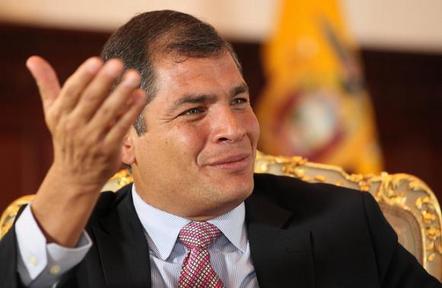
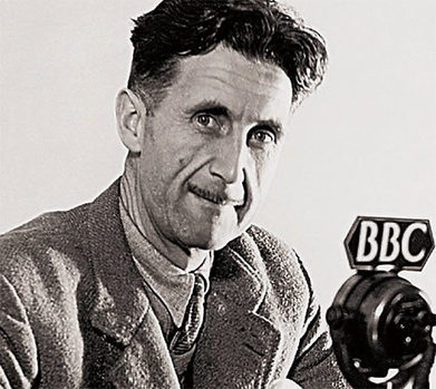
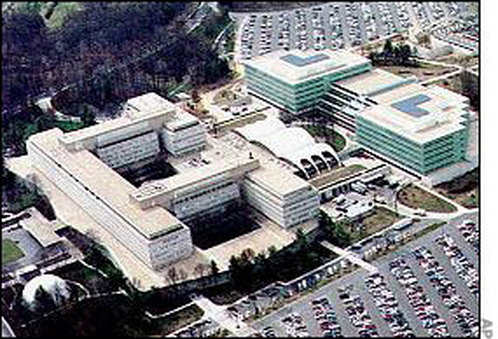
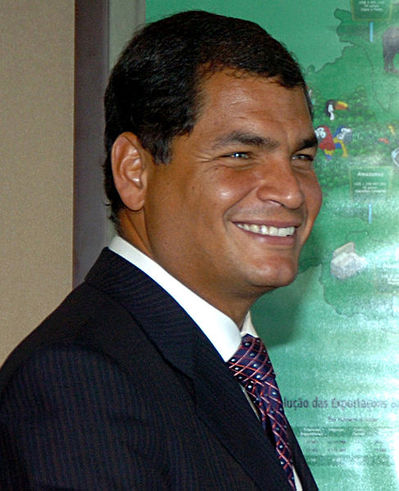
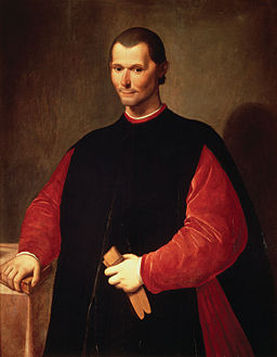
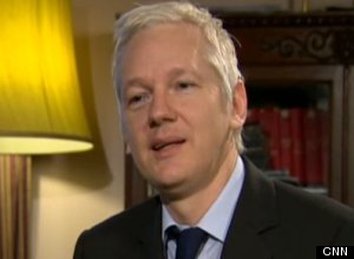
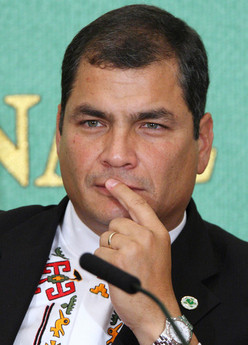
 RSS Feed
RSS Feed
